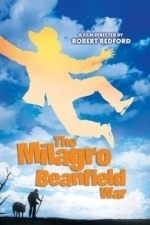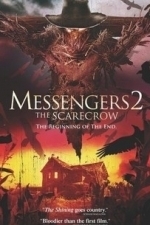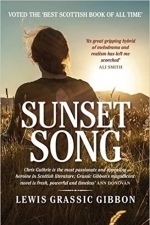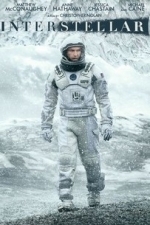Andy K (10823 KP) rated The Milagro Beanfield War (1988) in Movies
Jun 1, 2019
The townspeople eventually band together after much debate, but they are not sure anything can be done.
I enjoyed this drama; however, felt like it dragged a bit at times. The ensemble cast was enjoyable especially Christopher Walken and John Heard. Rubén Blades as the local law was also fun to watch.
The vast New Mexico countryside was probably my favorite element to watch. No doubt this factor was also probably appealing to Redford who is a lifelong environmentalist.
I enjoyed it.
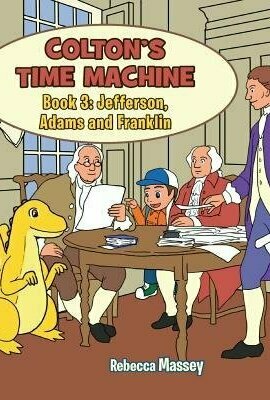
Colton's Time Machine: Jefferson, Adams, Franklin (Book #3)
Book Watch
As Colton was going to sit down, he looked at the map on the wall. "That's it! I'm going to visit...
Children Kids Picture Book Chapter Book Dragons Adventure
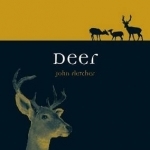
Deer
Book
The Celts called them 'fairy cattle' and the Greeks associated them with the hunter goddess Artemis,...
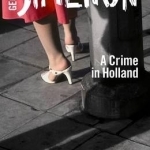
A Crime in Holland
Georges Simenon and Sian Reynolds
Book
A new translation of Georges Simenon's novel set in a tranquil town on the dutch coast, book seven...
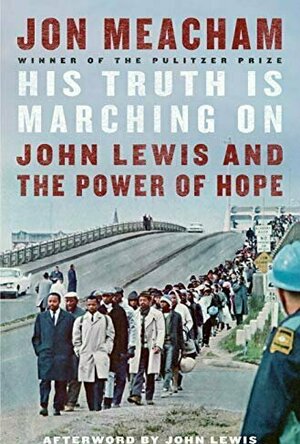
His Truth is Marching On
Book
John Lewis, who at age twenty-five marched in Selma, Alabama, and was beaten on the Edmund Pettus...
Chris Sawin (602 KP) rated Messengers 2: The Scarecrow (2009) in Movies
Jun 22, 2019
In my movie watching experience, I've learned that it's usually important to watch an original film before its sequel. With this day and age though where sequels are actually prequels and we get prequel trilogies sixteen years AFTER the original trilogy, there aren't really any guidelines to follow when it comes to watching films anymore. So being somebody who had no interest in seeing The Messengers, the sequel didn't really interest me until they announced Norman Reedus in the title role. Since Reedus had been impressive in films such as The Boondock Saints, Blade II, and even his brief (but rather incredible) cameo in Antibodies, I felt it was my obligation to at least give this film a chance. The results are pretty much what you'd expect for a direct to DVD horror film.
The acting isn't terrible, but doesn't really do much to stand out. Norman Reedus, Heather Stephens, and Richard Riehle are pretty much the cream of the crop as far as acting goes. Reedus does a good job of acting like a farmer who's going through troubled times and just wants to support his family. He was easy to relate to since just about everyone is either going through tough times or has so in the past. Stephens played the concerned wife and was able to portray the widest range of emotions in the film. Riehle always seemed to show up to encourage John Rollins to do mischievous things, so the seeds are planted from the get-go that something isn't quite right with him. The boy who played John's son, Michael, is the only actor in the film that could really be considered atrocious as his lines are delivered so nonchalantly.
The way the rest of the film plays out just feels like it borrowed heavily from Jeepers Creepers 2 and the Children of the Corn films. The scarecrow drags its scythe on the ground as it's stalking its victims, which was a nice touch but was really the only enjoyable part of the scarecrow. Once it reveals itself at the end of the film and starts walking around, it makes pterodactyl sounds and trust me, that's just as incredible as it sounds. The film actually starts going downhill in the second half, which is when the cheesy effects come in and unanswered questions begin. The latter half of the film is filled with a lot of moments that will leave you scratching your head wondering why you even decided to watch this film to begin with.
Messengers 2: The Scarecrow isn't exactly the greatest film to watch, but it isn't the worst either. While it does have its fair share of blood and isn't half bad at times, it doesn't really offer anything most horror fans haven't seen before. Messengers 2 is really only recommended for die hard fans of Norman Reedus since it's basically just a rehash of Jeepers Creepers 2 with a lower budget. It's the type of film that's a decent watch at 3 o' clock in the morning when you stumble across it channel surfing, but isn't worth deliberately tracking down on DVD.
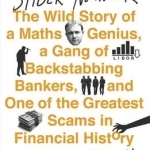
The Spider Network: The Wild Story of a Maths Genius, a Gang of Backstabbing Bankers, and One of the Greatest Scams in Financial History
Book
Listed as an FT book of the month. "Anyone with an interest in financial services and in what has...
Eilidh G Clark (177 KP) rated Sunsett Song in Books
May 14, 2017
BankofMarquis (1832 KP) rated Interstellar (2014) in Movies
Aug 9, 2018
And, for the most part, they succeed.
Following the adventures of "everyman" Cooper (if you call a farmer who is also a top notch astronaut, pilot and engineer an everyman), Interstellar tells of an Earth of the not-too-distant future that is running out of food and mankind must find a new planet to inhabit or else face extinction. Talked into leaving his family and heading into space, Cooper must face the challenges of his mission while fighting the emotions of leaving his family behind on a dying world.
As Cooper, Matthew McConaughey (at the height of his "McConnaissance") is perfectly cast as this "everyman". He brings the right balance of charisma, heroism, emotional maturity, intelligence and a "down to earth" behavior that has us rooting for him from the start. His acting is at the highest level and is matched, beat by beat by Jessica Chastain and (surprisingly to me at the time) Anne Hathaway as a fellow astronaut/scientist.
The special effects, worlds, circumstances, narrow escapes and deflating defeats are all handled in typical top-notch Nolan fashion, but it is the emotional stakes - specifically between McConaughey and Chastain (as his grown up daughter) are what keeps this film "grounded" and rises it above the standard sci-fi fair.
Nolan regular Michael Caine, the always great John Lithgow, Wes Bentley, Ellen Burstyn, a "before he was famous" Timothee Chalamet, another "before he was famous" David Oyelowo, Casey Affleck and a "surprise apperance" by a very famous "A" lister (who I will not name, so as not to ruin it) are all equally as good and give the proceedings the gravitas it needs.
Special notice needs to be made of the performance of Bill Irwin as the robot TARS (all space movies need a robot, right?). He performs the puppetry of the robot (Nolan wished to do everything as "practical" as possible) and adds large doses of humanity - and humor - to this non-human.
Another bit of special notice needs to be given to frequent Nolan collaborator - the brilliant Composer Hans Zimmer. He was tasked by Nolan to create a "unique" score - one that does not rely heavily on crescendoing strings and horns - and he succeeds tremendously with a hauntingly, melodic and driving score that heightens - but never overpowers - the scenes playing on the screen.
The decision as to whether or not you like this film will hinge on your "believability" of the final chapter - one where I "went with the flow" and was all right with, but (I'm sure) others will struggle with.
All in all, another top notch film by the best director of our day. If you have never seen INTERSTELLAR - or if you haven't seen it in awhile - I suggest you check it out, you'll be glad you did.
Letter Grade: A
9 (out of 10) stars and you can take that to the Bank (ofMarquis)

Nursery Rhymes by Dave and Ava
Education and Photo & Video
App
Watch all Dave and Ava videos for free on YouTube – youtube.com/daveandava Dave and Ava`s videos...
